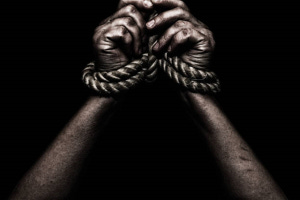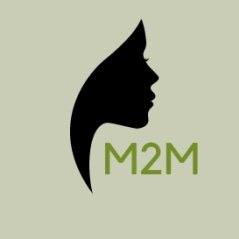Find, Take Back, and Keep Your Righteous Mind
If you ever felt you were losing your mind, this blog is for you!
“I am here to help you find, take back, and keep your righteous mind, because obviously have you lost it,” Melvin B. Tolson, The Great Debaters.
Told in the setting of 1935, America, The Great Debaters is now a cinematic classic. It explores the way four young Black students, who joined the Wiley College Debate Team, were able to use the power of rhetoric to combat both the terror of lynching and other forms of racial violence to which they were exposed. The college debate team would go on to have a record breaking 10 years as undefeated.
The debate team was headed by renown Harlem Renaissance poet, Melvin Tolson. In the movie, Tolson is consistently challenged by Henry Lowe, one of his brilliant but restless and troubled students. Prof. Tolson poses a series of personal questions to his newly assembled debate team. Tolson asks Lowe about his father which appears to strike a nerve. Instead of looking embarrassed, Lowe pushes back and insists that the professor talk, instead, about own his father.
Played by Denzel Washington, the professor responds by recounting a story of extreme Antebellum violence by Willie Lynch – the man whose name was lent to the word “lynching.” (See also Willie Lynch Syndrome, Ghanaians and the Willie Lynch Curse, and Lynching and Mob Violence.) The story resonates for many reasons.
First, it is the story of extreme cruelty and torture which combats contemporary counter narratives of “compassionate” enslavement. (See the Southern Argument for Slavery for more information.) Second, the story is told to reestablish the authority of Prof. Tolson which is never to be questioned. But in addition, it is a reminder to the students, and by extension, the audience, that something has been stolen and it must be reclaimed.
What does it mean to find, reclaim and keep one’s righteous mind?
How has the mind been stolen through legacies of trauma and brutality such as slavery? (For an interesting blog on this, see 7 Ways the Slave Mentality is Keeping You in Bondage.) Messages of inferiority persist, for example, through under-funded schools. Such messages persist as Black students are denied admission to elite education programs where young people have access to abundant resources which can help them cultivate new ideas as they become shaped into future societal contributors.
In addition, the theft occurs through ignoring and “whitewashing” history. By ignoring injustice, Western countries, who have stolen resources and labor from "vulnerable countries" ignore the debt they owe. In essence, these countries return the bill back stamped "unpaid" while pretending the bill was never assessed in the first place.
The act of reclamation is important. It is through the process of education, of activism and of faith that we are able to reclaim that which was lost. Today, society's bills, which must be paid urgently, will often come in an envelope with red lettering. But the "unpaid" bill due to vulnerable groups is assessed in blood.

I must confess that I sometimes feel I have lost my righteous mind. In the realm of religious academia, the issue of reinscribing racial hierarchies through biased hiring practices remains a persistent concern, particularly concerning the oversight of Black scholars even in posts specifically dedicated to womanist and Black liberation theology. Despite the call for diversity and inclusivity, the mere existence of these newly created positions may give rise to false hope for African descended individuals, as they continue to face systemic exclusion from opportunities to teach, share their experiences, and represent their communities.
This perpetuates the notion that only a White male can effectively fulfill such roles, undermining the very essence of religious education. The phenomenon of overlooking Black scholars for positions tailored to Black liberation theology is not only detrimental to the individuals involved but also perpetuates the wider problem of racial hierarchy within religious academia. It reflects a deeply ingrained bias that limits the scope of theological discourse and restricts diverse perspectives from enriching the field.
To truly progress toward an inclusive and equitable religious education, instititions must actively confront and dismantle such discriminatory hiring practices, fostering an environment where all scholars, regardless of race, can contribute meaningfully to the advancement of theological knowledge and understanding.
The world has moved past the tremendous loss of George Floyd. Gone are the moving pictures of police departments that kneel in humility to a goal of shared humanity. Without that single minded determination, we cannot rise up and claim justice. Instead, we provide false hope.
All over the world, people of African descent have their lives snuffed out through needless and arbitrary behavior. (See the National Library of Medicine for more information.) People around them turn to critique the US but have no idea about those deaths right in their own country!
The response must be persistent.
It must be unwavering.
It must be bold.

While it's tempting to see those communities of color as "losing their righteous minds," one cannot easily overlook the unspeakable violence that currently encroaches upon nearly every vulnerable group. It's not merely the chipping away at citizenship by frustrating and denying voting that creates the sense of one who has lost their minds. Rather, every person who looks up to see people run from them in fear and shoots them, every time a State actor sees their power and authority as absolute, proclaiming their desire to "blow your brains out," as was said to [xxx], each time these things occur, they do not occur in a vaccum. Rather, these things can only occur because those who perpetuate such atrocities have lost their minds!
By exploring the issues of unmitigated violence against vulnerable communities, and by examining the way this vulnerability continues through resistance to hiring Black scholars in higher education, we can stop help people find their righteous minds. Furthermore, we can help them reclaim and keep their righteous minds.
Dr. CL Nash, the Misogynoir to Mishpat (M2M) Research Network (c) 2023
Call to Action:
Please continue to follow us and share the following widely! You can follow us on:
Substack:
Facebook: https://www.facebook.com/groups/892718324979305
Twitter: https://twitter.com/gynoir2mishpat







